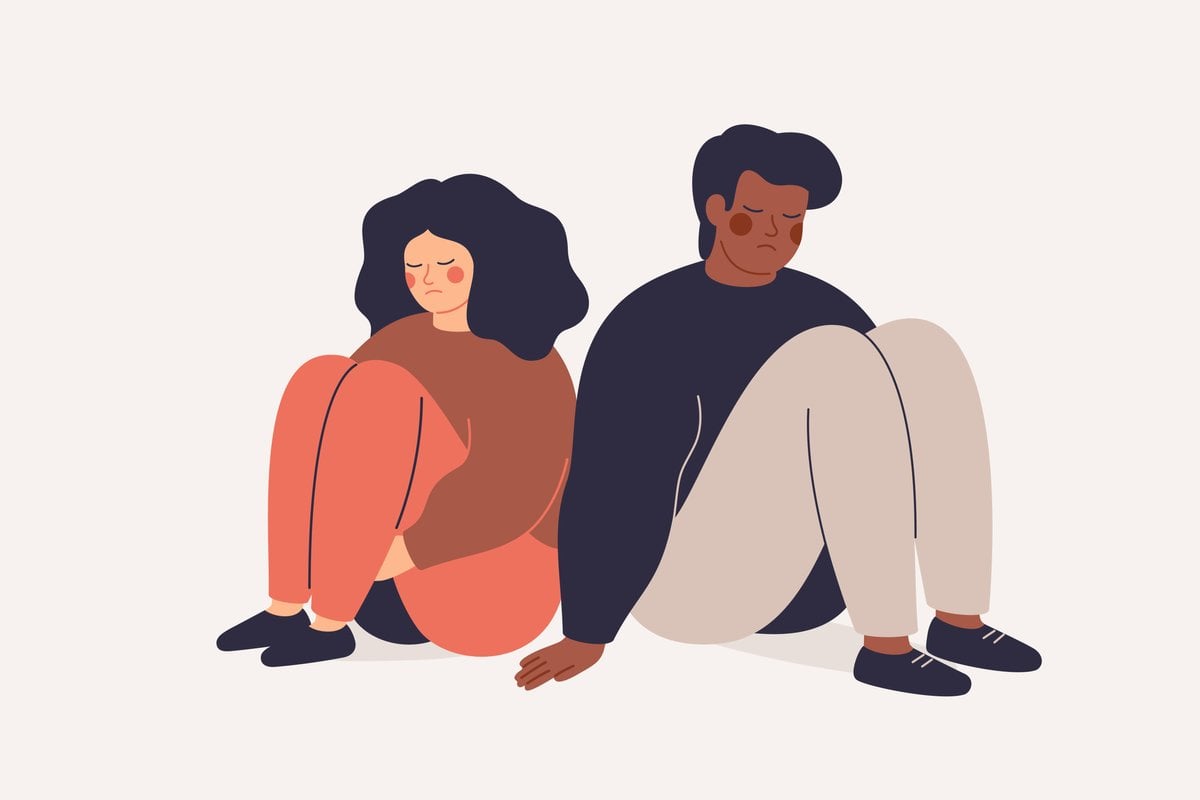
You know those arguments you have with your partner that tend to go... absolutely nowhere?
They don't understand your point of view; you don't understand theirs - and you go around in circles? And then you both convince yourselves that it's fixed and do it all over again a few months later??
Sigh.
That, friend, is what experts call a relationship 'blind spot'.
Watch: With and without Relationships: Single, not single. Story continues below.
Basically, when you're both just not *getting* each other.
We can suddenly get defensive, emotional, needy or just avoid the situation completely - all coping mechanisms we use to protect ourselves.
According to couples counsellor Lissy Abrahams, the causes of these blind spots and the ensuing coping mechanisms, go all the way back to your childhood.
"We were all shaped by our environment growing up more than we all know," explains Abrahams. "It’s like there is a program from which we automatically run much of our lives and our relationships."
"What’s critical here, is that we cannot easily access the information for what shaped us, as it’s held unconsciously in our mind. For many of us, the information was encoded when young, before we even had words."





























































































